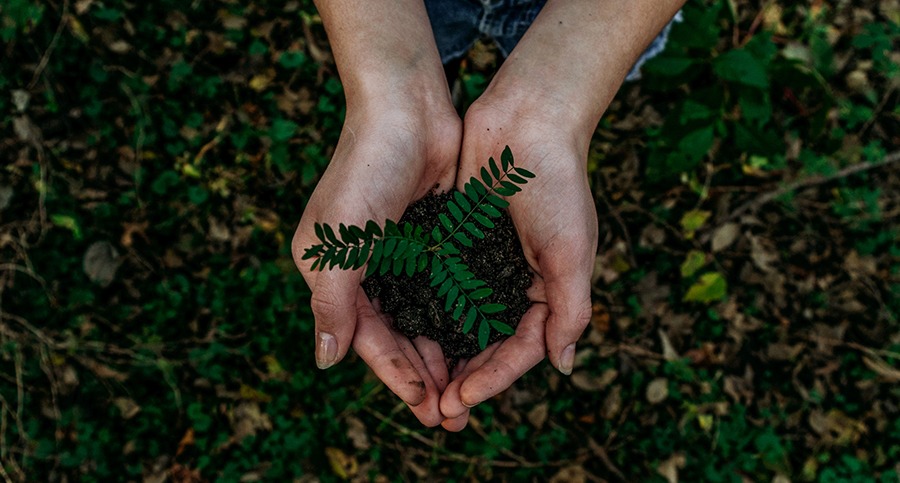The THRIVE project is incredibly grateful to Nina Gbor and Sanjana Swaroop for their captivating presentations during the July 2024 Thrivability Matters Webinar. This webinar focused on the United Nations Sustainable Development Goal 9 (SDG-9): Industry, Innovation and Infrastructure & Sustainable Living. With their extensive knowledge, our presenters captivated us by highlighting the critical issues surrounding the textile industry and the significant environmental impact of fast fashion trends. They inspired us to make a difference in our own lives.
Here are the highlights from our webinar!
About The July 2024 Speakers

As the founder of Eco Styles, Nina Gbor is a sustainable fashion educator, international speaker, sustainability consultant, clothes swap expert, and eco stylist. Eco Styles engages with media, councils, organisations, schools, community groups, and individuals to provide ways societies can move towards a holistic, sustainable fashion future. Nina Gbor is the Director of the Circular Economy & Waste Program at The Australia Institute. She was featured in season 3 of ABC TV’s award-winning environmental series, War on Waste. Nina is also an impact consultant on the War on Waste TV show. Nina has a master’s degree in International Development and guest lectures at universities in Australia and abroad. She is the founder of Clothes Swap & Style and has been hosting clothes swaps for 12 years. Nina coined the phrase ‘get off the fashion trendmill’ to help people embrace sustainable personal style instead of fashion trends.
Sanjana is an international corporate lawyer turned social entrepreneur and Co-founder of EcoDhaga. EcoDhaga took roots when the founders were confronted with the waste problem in India and decided to find a solution for the 51% of textile waste that ends up in our landfills in India. EcoDhaga is India’s first ethical thrift store with a unique close-the-loop model that they’ve built in tandem with their patrons, donors, thrifters and community. The journey to build a social impact business has been interesting and challenging. As all start ups, we have good days and days we learn, but we’re geared to help India achieve its global sustainable development commitments, swachhta mission and promoting women entrepreneurs. EcoDhaga has been awarded with APAC Insider Business Award for Most Sustainable Clothing Store (Southwest India) in 2022 and in 2023, and we hope to continue to build on this journey. What makes us different, makes us a responsible and conscious business.

Summary Of The July 2024 Webinar
As an organisation, the THRIVE Project endeavours to guide humanity towards a more sustainable future. We had the privilege of hosting these two speakers as guest presenters for our webinar.
Nina Gbor – The Fashion TRENDmill and How to Curate a Sustainable & Stylish Wardrobe.
The fashion industry, once sustainable with its four-season schedule and reliance on natural textiles like wool and cotton, has drastically changed. Nina witnessed the effects of this transformation firsthand during a family trip to Nigeria, where clothing donations and textile waste devastated the local economy and ecosystem. This experience, combined with her passion for fashion, ignited her desire to make a difference.
Nina coined the term ‘Fashion Trendmill’ to describe the modern trend of overconsumption fuelled by the linear take-make-waste system. Brands like Zara and H&M, through planned obsolescence, produce low-quality garments that force consumers to buy more. This drives a culture of overconsumption. Over the past two decades, we are consuming 400% more clothing and keeping our clothes for a shorter period. Ultra-fast fashion brands like Shein and Temu have further exacerbated this issue. Temu alone generated over $18 billion in sales in 2023.
Nina explored the dark side of these impressive sales figures. She highlights the fashion industry’s detrimental practices: reducing labour and material costs, often through exploitative means. Many brands rely on sweatshops and modern-day slavery, where workers endure poor conditions, long hours, and meagre wages. Synthetic materials, now making up 62% of all clothing, release microplastics into the ocean, harming marine life and humans. The industry also causes deforestation, pollutes waterways with toxic dyes, and produces four million tonnes of textile waste annually. Moreover, it exploits people’s self-esteem, promoting new trends as solutions to feelings of worthlessness that they instil. Nina emphasised the need to account for environmental and humanitarian costs when assessing industry and brand success.
Nina concluded her presentation on a hopeful note with four steps to escape the fashion trendmill: drastically reduce consumption, decentralise consumption by reusing and extending the life of items, embrace a circular economy to minimise waste, and prioritise ethical values and humanity over materialism. She emphasised that fashion is an extension of oneself. Hence, we should acquire things we have a deep connection and love for. By fostering a meaningful relationship with our possessions, Nina believes we can create a more ethical, sustainable, and stylish future.
Sanjana Swaroop – Beyond Innovation: Revolutionising Age-old Industries for a Sustainable Future.
Starting by defining what industry is, Sanjana illustrated its evolution from the early 18th century. She demonstrates the vast impact it has today, synonymous with mass production. Since the industrial era began in the 18th century, atmospheric CO2 levels have increased by 150% compared to 1750 levels, primarily due to human activity. Sanjana emphasised that continuing at current industrial rates is detrimental and unsustainable. Her company, EcoDhaga, which translates from Hindi as “conscious threads,” aims to raise awareness to take action toward more sustainable fashion practices.
The fashion industry stands as the world’s second-largest carbon emitter. The relentless marketing culture promotes a ‘Buy first, think second’ mentality. This fuels overproduction and excessive consumption. Currently, there are enough garments to clothe the next six generations, illustrating an alarmingly indulgent trend. Shockingly, 80% of discarded garments could have been repaired, repurposed, or recycled. These contribute to 51% of waste found in Indian landfills. Sanjana addressed the industry’s exploitative practices, underscoring the hidden costs of cheap fashion. Whether through labour exploitation or irreversible ecological damage, “someone is always paying the price.” She also highlighted the extreme measures some designer brands take to maintain their image, such as burning excess stock rather than reducing prices.
Sanjana posed a poignant question: “Can we attain the goldilocks zone where industry, economy, and climate all thrive?” While there has been innovation in the fashion industry, notably in carbon capture, Sanjana explained that such technologies can lull us into a false sense of security. Concepts like decarbonisation and degrowth models have yet to see practical application due to asymmetrical values and fear of potential economic collapse. Ultimately, the current consumer culture and mindset divert us from serious solutions, allowing industry to continue unchecked. Sanjana emphasised that change must originate from the grassroots. Thus, she is advocating for community-led infrastructure as the most optimized path to raise awareness and adopt sustainable, scalable practices.
The life cycle of fashion waste has four stages, beginning from resource extraction all the way to the end consumer. Embodying her ideals of grassroots change, Sanjana’s company, EcoDhaga, focuses primarily on the final stage, Post-Consumer Waste. This stage encompasses all items in our closets and what happens to the garments once bought from the retail store. Through workshops and events, EcoDhaga strives to empower regular people to declutter responsibly, donate consciously, and recycle sustainably. Up to 30% of garments are thrown away or returned due to a minor defect, a startling statistic that EcoDhaga aims to tackle. Sanjana believes that by addressing post-consumer waste and promoting responsible consumer habits, we can collectively move towards a more sustainable fashion industry.
Moving Forward From July 2024
The Thrivability Matters Webinar for July 2024 showcased insights from Nina Gbor and Sanjana Swaroop. If you missed the presentations or the live Q&A session, you could view the recording on our YouTube channel or download the PDFs from each of the speakers by clicking their names below.
If your interested in joining us after the July 2024 Thrivability Matters Webinar, there are a variety of avenues you can take. One way of keeping up with us is via social media platforms, such as LinkedIn, X, Instagram, and Facebook. However, you could subscribe to our YouTube channel, listen to our podcasts, sign up to our newsletter, stay up to date with our blogs, attend our free webinars, or even join us as a volunteer to make an even bigger difference in this world.
Interested in Innovation, Industry, & Infrastructure?
Want to be kept in the regenerative loop with THRIVE?
Got more questions?
Ask an expert!























